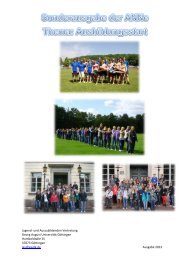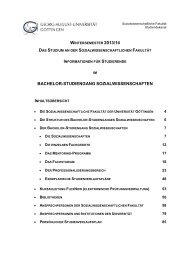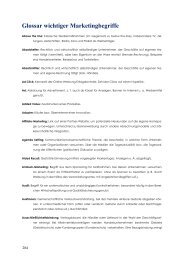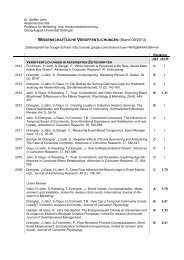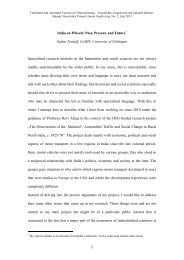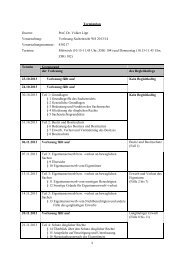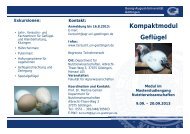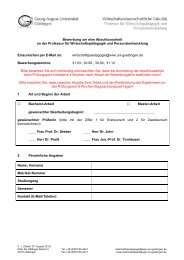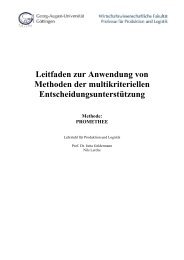[DVRW 2013] - Georg-August-Universität Göttingen
[DVRW 2013] - Georg-August-Universität Göttingen
[DVRW 2013] - Georg-August-Universität Göttingen
Sie wollen auch ein ePaper? Erhöhen Sie die Reichweite Ihrer Titel.
YUMPU macht aus Druck-PDFs automatisch weboptimierte ePaper, die Google liebt.
will lie on the rather new occurence of commemoration films on YouTube, which<br />
are – because of the fact that they usually include stills or clips of dead or dying<br />
infants, which by many commenters are considered to be inappropriate and / or<br />
“too drastic“ – are highly debated online and offline.<br />
Harish Naraindas: Child bereavement in Germany and the USA: religious<br />
responses, practices and rituals to pregnancy loss and neonatal death<br />
This paper will consider the history and practice of prenatal diagnostics in selected<br />
German and US American urban centers. Comparing data form Germany and<br />
the US, this paper will focus on religious practice and discourses related to<br />
various emotional, moral, socio-political as well as scientific opinions of how a<br />
foetus or dead infant should be cared for, treated or disposed off and how the<br />
“orphaned parents” should be cared for. The project will focus on a range of<br />
bereavement counseling and ritual handling of dead babies in case of stillbirth,<br />
neonatal death and abortion.<br />
Karin Polit: Medical technology and religion in India: What prenatal diagnostics<br />
have to do with social responsibility<br />
How do biomedical practices, technologies, connected ontologies and epistemologies<br />
intersect transculturally with religious and other cultural practices in<br />
cases of threatened or actual pregnancy loss, terminations of pregnancy, early<br />
infancy death or disability of foetuses and infants of urban middle class families<br />
in highly technologized hospitals in India? This paper will consider the history of<br />
and practices related to the spread of biomedical reproductive technologies in<br />
connection with changing hopes and imaginaries concerning the unborn child in<br />
urban India. I will trace discourses connected to these sentiments and emotional<br />
responses among the upper middle classes of India. How does scientific epistemology<br />
interact with local understandings of personhood, emotional attachment,<br />
practices of caring and grieving practices or ideas of handling, analyzing and<br />
disposing of the small dead bodies?<br />
132<br />
Panelstrang F: ZHG 006<br />
Katharina Wilkens (München) und Jörg Haustein (Heidelberg)<br />
Afrikanische Religionsgeschichte: Postkoloniale Perspektiven (I)<br />
<br />
<br />
<br />
<br />
Einleitung: Katharina Wilkens<br />
Ricarda Stegmann: Moderne Imame in Algerien? Der Wandel religiöser<br />
Autoritäten und ihrer Ausbildungsstätten im Kontext der französischen<br />
Kolonialherrschaft<br />
Jörg Haustein: Religion und „Eingeborenenrecht“ in Tanganjika: Islamische<br />
Jurisdiktion und koloniale Rechtsetzung in Deutsch-Ostafrika<br />
Samuel Krug: ‚Äthiopische Juden‘: Die Beta-Israel und die Konstruktion<br />
einer jüdischen Identität


![[DVRW 2013] - Georg-August-Universität Göttingen](https://img.yumpu.com/27553787/134/500x640/dvrw-2013-georg-august-universitat-gottingen.jpg)


